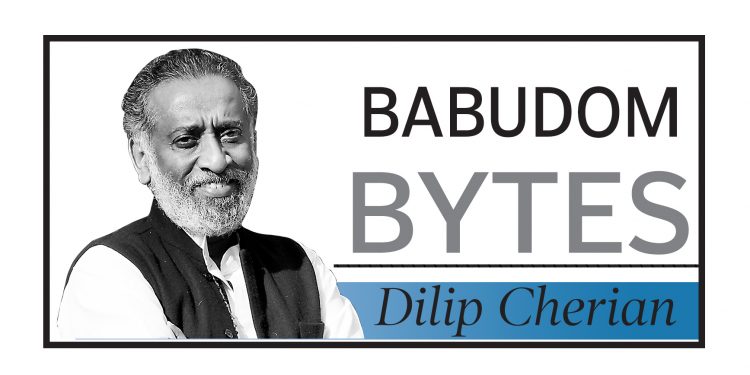Since its second term, the Modi government has retained top civil servants beyond retirement for ‘continuity in policymaking’. Weeks after being voted back to power, the Narendra Modi government extended the tenure of Intelligence Bureau (IB) chief Tapan Kumar Deka. In addition, the government also reappointed Amit Khare and Tarun Kapoor as advisers to the PM, giving a firm message of continuity in the Prime Minister’s Office (PMO) in the Modi government’s third term, albeit in coalition with other parties this time. Rajesh Kotecha, secretary in the AYUSH ministry since 2017, also got his third extension since his appointment.
Clearly, the government’s penchant for extensions to top officials continues. Senior IAS Utpal Kumar Singh, the incumbent Secretary General of Lok Sabha (Secretariat), has reportedly been given another one-year extension. Mr Singh’s term was expected to end this month. Further, Mallika Srinivasan, Chairperson of the Public Enterprises Selection Board (PESB), received an extension just days before retiring, allowing her to continue until November 2025. Srinivasan’s leadership has been pivotal in steering the PESB, and the extension suggests confidence in her steady approach.
Meanwhile, a similar question hangs over Reserve Bank of India (RBI) Governor Shaktikanta Das as his six-year term winds down on December 10. Under Das’s watch, the RBI has navigated major economic hurdles, including the pandemic, while holding interest rates steady for nearly two years despite calls for easing. His continuity could provide stability amid a tough economic climate, and while speculation points towards an extension, there’s no official word yet. The Appointments Committee of the Cabinet, led by Prime Minister Modi and Home Minister Amit Shah, holds the decision, with both the RBI and Das maintaining silence on the matter.
Adding to the intrigue, RBI Deputy Governor Michael Patra’s term ends in January. Observers agree that a leadership change, whether Das or Patra, might impact the RBI’s approach to interest rates, particularly given Das’s consistent control over inflation. Both situations demonstrate the need for leadership continuity, but extensions are also seen as violations of service rules and can be demoralizing. What’s your take?
Narayan Murthy’s bold fix for bureaucracy
So, after urging India’s youth to embrace the charms of a 70-hour work week, Infosys co-founder NR Narayana Murthy has now set his sights on the world of Indian bureaucracy. His latest brainstorm? Recruit IAS and IPS officers from top business schools instead of relying solely on the tried-and-tested UPSC exams. Because, of course, India’s civil servants need a crash course in “management mindset” to catapult us towards that elusive $50 trillion economy by 2047.
Murthy’s pitch is intriguing: bring in leaders trained to chase KPIs, crunch numbers, and wield Power Points. After all, if corporate leadership can steer billion-dollar enterprises, why can’t it give a little corporate shine to the business of governance? Murthy argues that while our government machinery, bless its bureaucratic heart, remains tethered to the status quo, business leaders are wired to “aspire.” Imagine that—babus with business plans!
On the one hand, Murthy’s timing couldn’t be better. As PM Modi’s government pushes for economic reform and modernization, Murthy believes a dose of management mojo could shake things up. He even suggested that civil servants should get tailored business training before tackling sectors like agriculture, defence, or manufacturing. The idea of sector-specific management boot camps sounds appealing, but will our traditionalist babus, who’ve already endured UPSC’s gauntlet, agree?
While Murthy’s vision has its charms, one can’t help but picture seasoned babus reluctantly giving up their classic bureaucratic arsenal for MBA buzzwords and balance sheets. If Modi decides to take Murthy’s advice, the civil service might just transform into a more “target-oriented” machine—though there will likely be more than a few groans along the way.
Of samosas and social media spats
When it comes to governance quirks, Himachal Pradesh and Kerala both seem to offer plenty of comic relief. In Himachal, the case of Baddi SP Ilma Afroz, an earnest IPS officer who left a prestigious UN job to serve her country, stands out. Her transgression? Daring to issue a fine to vehicles linked to the family of MLA Ram Kumar Chaudhary for alleged illegal mining activities. The response was swift: a Breach of Privilege motion in the Assembly and an enforced “vacation.” Here, apparently, refusing to bend the rules in favour of political connections can send you on indefinite leave. But, hey, when you have investigations into the Chief Minister’s missing samosas to prioritize, keeping hard-working officers on duty isn’t exactly urgent.
Also Read: Agnee: Lighting the fire of fusion rock
Meanwhile, Kerala’s governance drama recently unfolded on social media, with two IAS officers finding themselves suspended after an online spat. The saga began when K. Gopalakrishnan formed a WhatsApp group called “Mallu Hindu Officers” that included senior Hindu IAS officials. The group was quickly deleted, but the controversy was just warming up. Another officer, N. Prasanth, aired grievances against senior official A. Jayathilak through a series of posts, triggered a very public spectacle. Chief Minister Pinarayi Vijayan and Chief Secretary Sarada Muraleedharan acted promptly, putting both officers on ice to cool off.
With one state busy issuing leaves to honest officers and the other quelling social media feuds among babus, one wonders if the real challenges of governance could be taken half as seriously as these diversions. But why tackle hard issues when you can deal with “missing savouries” or a rogue WhatsApp group? It seems personal tiffs and bruised egos are the flavour of the day.
By Dilip Cherian






































